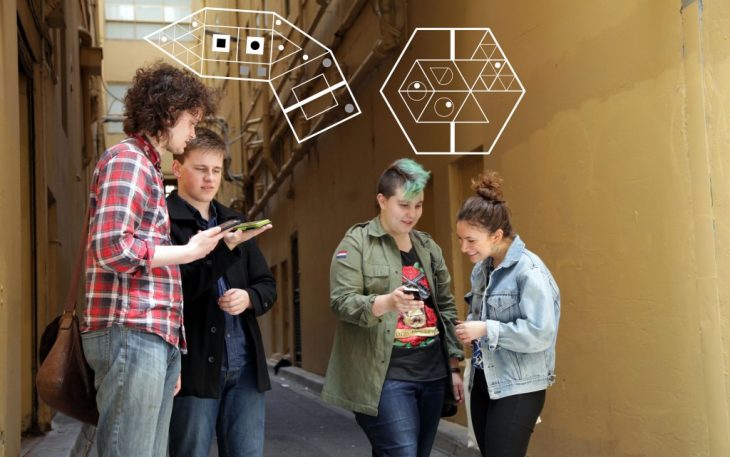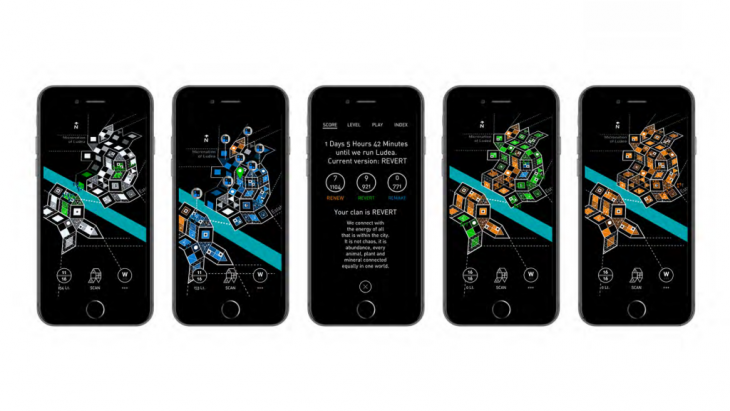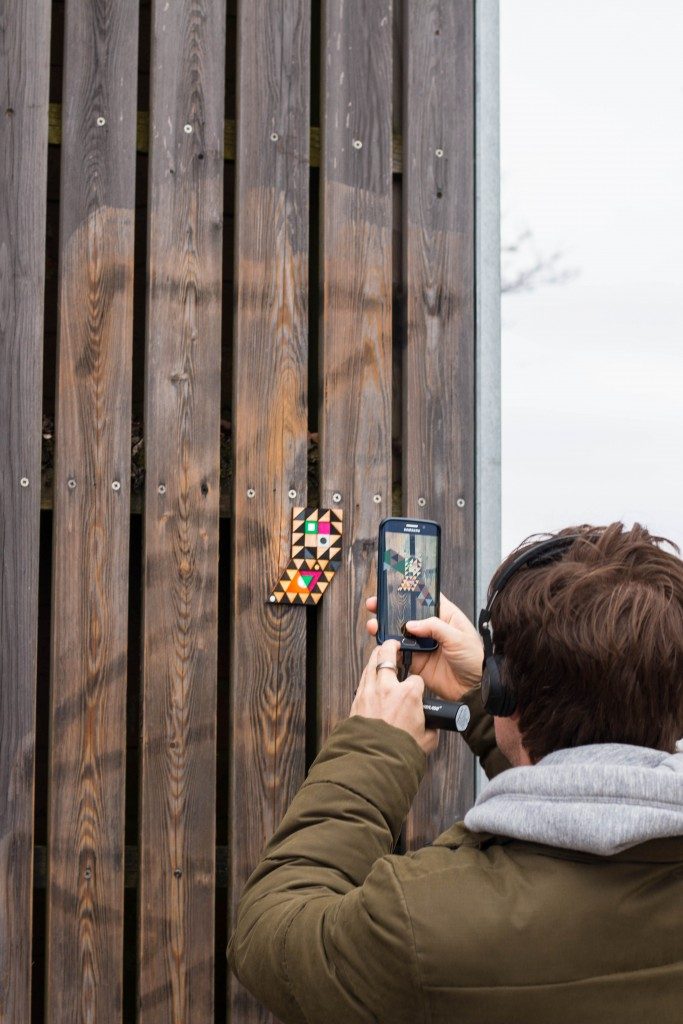Wayfinder Live
Tutor: Troy Innocent
Master class
Given that citizens relate to and engage with cities in mixed realities enabled by augmented reality and ubiquitous technologies, how can these new places be made meaningful and situate citizens within the ‘feedback loop’ of processes that generate and make the city itself?
Duration: 3 hours split across studio space and street locations
Required: clothes and shoes suitable for outdoors and a fully charged smartphone
 Background
Background
The design of most location-based Augmented Reality (AR) games is connected with city exploration using GPS navigational maps. Reliance on the live map creates experiences that focus on the mobile screen rather than the streets and landmarks important to way finding.
Wayfinder Live 2017 is an iOS / Android app that expands on its earlier design via a narrative about a hidden city within the actual city, and the use of geofencing to inform players of sites in the game without relying on constant use of the mobile screen in the game design. In this way, it explores wayfinding as a mixed reality experience that blends actual, material, virtual and digital signs.
 Concept
Concept
Cities can be sites for self-discovery and transformation; they are also constantly in the process of becoming. Urban codemaking is a framework for decoding and reimagining cities, a programming language for urban space that marks locations in the city using codes enabling multiple alternate readings of that city – by machines, humans, and other entities. This master class will invite feedback on the current iteration of this system following a series of interventions into public space situated around experimental and playful approaches to wayfinding using urban codes.
 Activity
Activity
In this master class, three main areas will be covered:
-
- background on the development of the project and previous play in Melbourne and Bristol, including a summary of objectives: to make cities ‘playable’, to explore and expand the idea of wayfinding, to shift the meaning of public spaces through playful appropriation, to invite citizen reflection and feedback on what makes cities happen, and to create new ways of being through play
- research, development and production of a Wayfinder Live ‘game level’ in the ‘superblock’ across three stages: identification of sixteen locations, consultation with local residents and businesses, and placement of ‘Wayfinder Live’ markers to map out the game level. There may be an opportunity to ‘remix’ the game texts to talk to the local context and lcoations.
Recruiting of players and play of the game. Following the master class, the game could run for the duration of a week – during this stage both street play and multiplayer activity in the Wayfinder Live app will steer the game towards one of three outcomes that revert, renew or remake the city. This is a form of collective ‘voting’ activity in which players strategically use ‘influence’ earned in the game to shift the colour of the sixteen map locations and change the ending of the game.
Participants will move between conceptual and practical concerns, and may be engaged following the main master class as the game moves through its stages. This may include tweaking or changing the game if required, or simply observing and reflecting on the collective and individual actions of the players.

References
http://ludea.net/wayfinderlive/